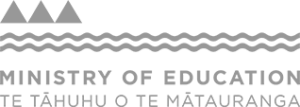CEO Update
Kia ora,
They say that getting older means slowing down. Whilst that might be true for me personally – it definitely is not for Netsafe.
During the last quarter, Netsafe received our highest number of harmful digital communication reports ever. We are continuing to have some of the busiest days since Netsafe’s service under the Harmful Digital Communications Act began in November 2016.
It was also incredible to see the record number of supporters join up to celebrate Safer Internet Day in February. As a result of the community coming together we saw a significant increase in the number of people coming to us seeking advice for a harmful incident or using our self-help resources which always makes me hopeful that more people needing support now know where to come. We’d like to thank everyone who participated and we are looking forward to more online safety activities for people to partner with us on this year.
From our Board down, we’ve also had changes at Netsafe.
Jon Duffy was elected as Board chair and Anita Killeen as deputy chair. Steve Honiss was appointed to the board when Andrew Cowie was employed as Netsafe Education and Schools Team manager and resigned from the board. Andrea Leask has joined us as General Manager and we’ve also hired four new education advisors.
I’m also proud to let you know that Netsafe is leading the development of Aotearoa’s first Online Safety Code of Practice. The Code is designed for ICT organisations providing services to people in New Zealand.
I’ve been having discussions with multinational technology organisations to understand if the industry is interested in the Code. The overwhelming answer is yes – and the support thus far is positive.
Together we are working through the launch development phase with interested industry partners. We will hold workshops over the next few months and there will be more details unveiled during Netsafety Week coming up in July. The inaugural Netsafety Week will take place between 26 and 30 July and we’d love to have your support. There will be a variety of events throughout the country and online webinars that people can participate in.
I am excited about the work the Netsafe team are doing and how we are helping keep people safe online. Thank you for your continued support and interest in Netsafe’s work. I look forward to updating you again soon on why getting older feels nothing but positive.
Ngā mihi,
Martin Cocker
CEO

Report Contents
Senior Leadership Team Update
Andrea Leask, General Manager
I’m thrilled to have joined the Netsafe team as General Manager. I have responsibility for ensuring Netsafe’s products and services are delivered effectively and efficiently, and meet the needs of our customers and stakeholders. My talented, capable team comprises an Office Manager, a System Analyst and our Public Education team. In case you aren’t aware, the Public Education team are the unsung heroes behind Netsafe’s website, marketing and communications material, including the quarterly report you’re reading right now.
One of Netsafe’s most important responsibilities is to educate and inform New Zealand about online safety so that they can confidently access digital opportunities without experiencing harm. If something does go wrong online, we aim to equip them with the tools and knowledge to take action, so that they can get on with the business of enjoying their lives. Our team are available seven days a week to provide free, confidential and non-judgemental support to those experiencing harm online.
On Tuesday, 9 February 2021, we celebrated the 18th international Safer Internet Day. The theme this year was “Together for a better internet”, encouraging everyone to join the movement, to participate and to make the most of the internet’s potential to bring people together to connect. This year we had a record number of supporters joining Netsafe to encourage and promote a better online experience, especially for children and young people.
The Public Education team are now planning the inaugural Netsafety week: 26-30 July. Together with a number of partner organisations, we aim to turn the spotlight on staying safe online. We can’t wait to share more details about Netsafety week shortly.
You may have also heard more about Netsafe as we’ve been using different channels to educate people about how they can minimise their own online risks. If you don’t already, you can also keep up with our activities by following us on Facebook, Twitter, LinkedIn or Instagram. If you have any ideas on how we could work together to better support internet users, please get in contact.

Quarterly Results
Between January and March 2021, Netsafe received 5,295 reports overall which is a 12.7 percent decrease compared to the last quarter. Netsafe experienced a 21.9 percent increase in personal harm reports, a 24.6 percent decrease in scam reports and a 1.4 percent decrease in other reports – these reports relate to objectionable material.
TOTAL REPORTS (-12.7%*)
PERSONAL HARM REPORTS (+21.9%*)
SCAM & FRAUD REPORTS (-24.6%*)
OTHER REPORTS (-1.4%*)
*percentage change based on reports made to Netsafe when compared to the last quarter
Reports by age group
2%
00-12
8.9%
13-17
7.6%
18-21
39.3%
22-40
28.2%
40-64
14%
65+
Reports by region
Reports by gender
55.2%
FEMALE
5.6%
GENDER DIVERSE
39.2%
MALE
Personal Harm Reporting
There were 678 breaches of the 10 communication principles reported to Netsafe. This is a 40.4 percent increase compared to the previous quarter. The most reported personal harm categories for the quarter are outlined below.
Reported breaches under the Harmful Digital Communications Act*
* Cases often involve breaches of more than one communication principle
Scam and Fraud Reporting
There were 2,875 scam reports made to Netsafe during this quarter which is an overall decrease compared to the last quarter. Of these reports, 822 related to people losing money to scammers. People reported a combined loss of $5,316,054.39 which is a 21.3 percent increase compared to the previous quarter. The average loss was $6,467.22 which is a 55.9 percent increase.
The most reported category related to relationship and trust fraud followed by consumer investment fraud. The average loss for someone in a romance scam was $28, 752.32.
Scam reporting trends
Scam & fraud snapshot
$5.3M
REPORTED LOSSES
822
REPORTS WITH $ LOSSES
$6,467.22
AVERAGE LOSS
Top scam categories reported
Education Sector & Public Engagement Services
This year’s Safer Internet Day campaign was Aotearoa’s most successful. Netsafe hosts the day on behalf of the country, and we had a record number of supporters and a significant increase in people seeking self-help and expert advice afterwards. We were particularly happy to have so many new supporters join this global awareness campaign designed to promote a more positive time online.
Netsafe also released information to help people dating online given the volume of romance scam reports we are receiving. We’ve recorded a 39 percent increase in romance scams involving a financial loss between 2019 and 2020 – the average loss is $18,667 per person.
We have been busy connecting with schools and Kura throughout the country and are in the process of revamping the Netsafe School Programme to reflect the conversations and feedback we are having while there.
In March, Netsafe launched the Here for every stripe of the rainbow community campaign as our data recognises the rainbow community is over-represented in online harm statistics. The campaign offered self-help advice and reinforced how to get incident support.
Some of the other activities included:
Education support
104 requests for support from 82 schools
Netsafe Research Releases
Who sends harmful digital communications and why?
Netsafe’s research uncovers a range of reasons harmful digital communications are sent. Netsafe surveyed adults to determine if they’ve sent harmful digital communications in the last year, and the reasons behind their actions.
With 18 percent of adults reporting they had received harmful digital communications, this study sought to understand who is creating the content, and why it was happening.
The research found:
- Eleven percent of adults admitted sending or sharing at least one type of potentially harmful digital communication – and nearly 80 percent had done this more than once.
- Topping the list of reasons for sending a harmful digital communication was “for a joke” (28 percent), “to influence behaviour or thoughts” (14 percent), “to scare” (8 percent) and “to embarrass” (6 percent).
- Six percent of respondents admitted to saying offensive things about someone else, and three percent tried to embarrass another person, attempted to exclude someone from a friendship group or made a sexual advance they were not sure was welcome.
- Of those who sent harmful digital communications, 29 percent were friends of the recipient and 20 percent were family members. The main way to harm someone is predominantly via text (39 percent) followed by social media (34 percent) and email (20 percent).
Read the full report here
Trends in digital communications in the LGBTQIA+ community
Netsafe’s factsheet compares annual trends regarding the prevalence of unwanted digital communications based on participants’ sexual orientation.
Annual trends identified in the data include:
- Non-heterosexual participants are more likely to experience receiving these types of unwanted digital communication when compared to heterosexuals.
- Annual rates for each type of unwanted digital communication were not steady, but in 2020 non-heterosexual participants’ experiences varied with significant increases.
- From 2019 to 2020 there was a considerable increase in the percentage of non-heterosexual participants who said they had sent an unwanted digital communication.
Read the full report here
About Netsafe
Find out more at www.netsafe.org.nz
BECOME A NETSAFE MEMBER
Netsafe is incorporated as a society and a charity. Our members represent a variety of backgrounds and countries, but all have one thing in common – an interest in keeping people safe online. Membership is free and easy to apply for. Find out more about being a Netsafe member or apply by completing our online form.
Find out more about being a Netsafe member, or apply to join today by completing our online form.
REPORT DATA
The data in this report represents the data available at the end of the quarter. Information related to the reports made to Netsafe reflect high-level trends and does not include easily identifiable information about specific reports/incidents.
If you have any queries about the information in this report, please email [email protected]


